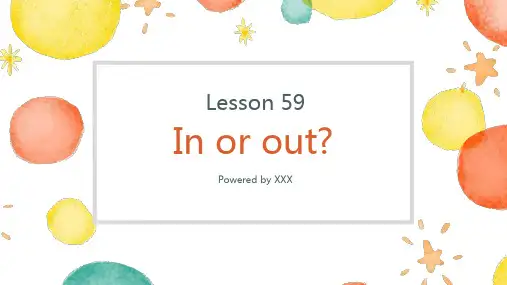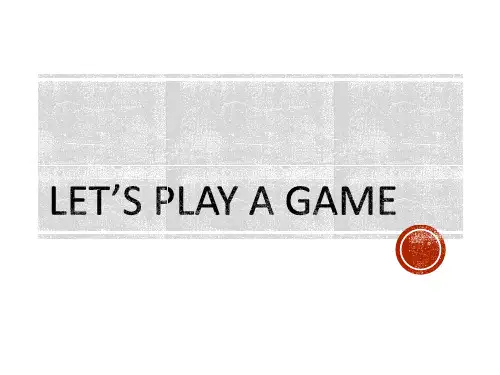新概念英语第二册第59课In or out插图完美版
- 格式:ppt
- 大小:1.93 MB
- 文档页数:43
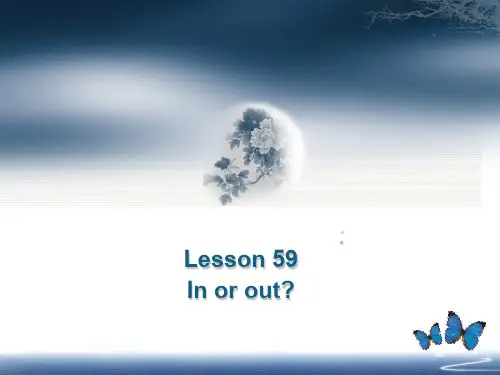
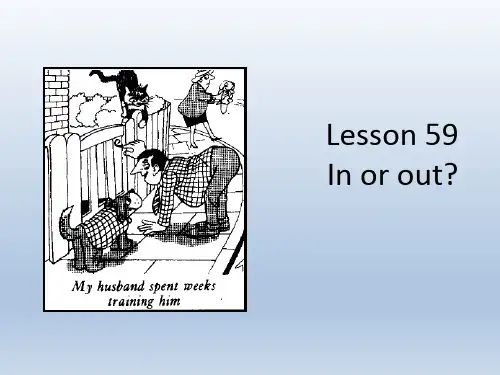
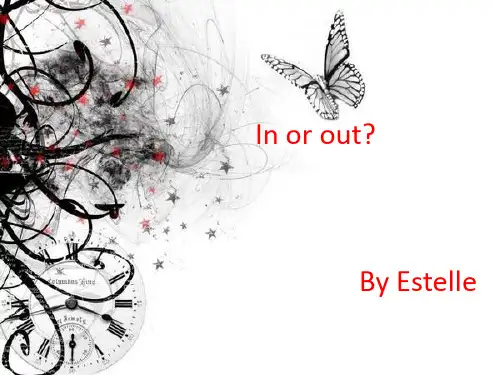
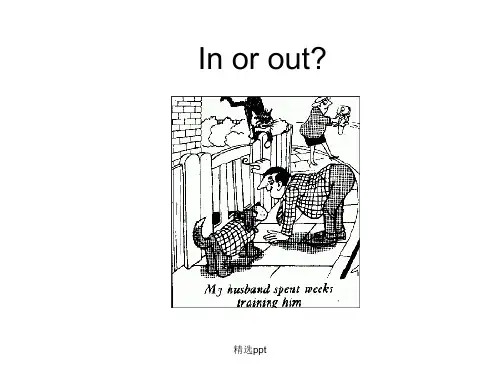
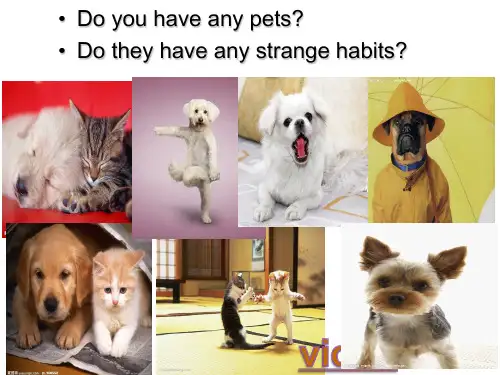
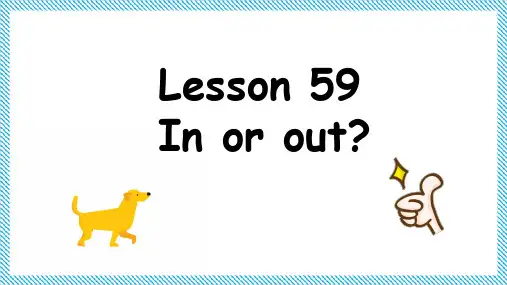
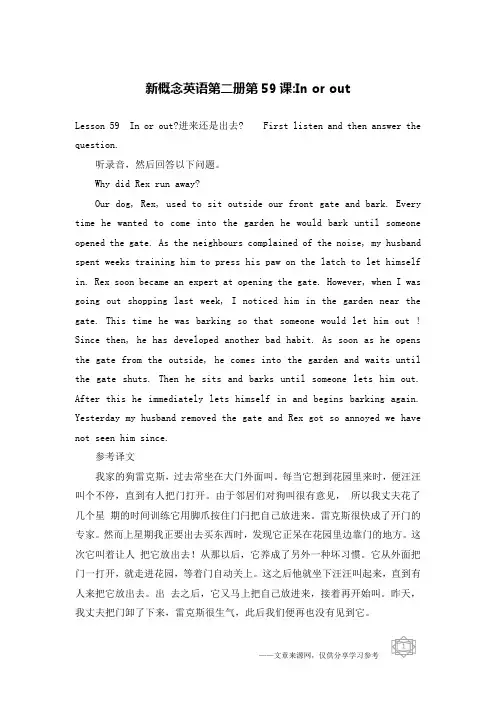
新概念英语第二册第59课:In or outLesson 59 In or out?进来还是出去? First listen and then answer the question.听录音,然后回答以下问题。
Why did Rex run away?Our dog, Rex, used to sit outside our front gate and bark. Every time he wanted to come into the garden he would bark until someone opened the gate. As the neighbours complained of the noise, my husband spent weeks training him to press his paw on the latch to let himself in. Rex soon became an expert at opening the gate. However, when I was going out shopping last week, I noticed him in the garden near the gate. This time he was barking so that someone would let him out ! Since then, he has developed another bad habit. As soon as he opens the gate from the outside, he comes into the garden and waits until the gate shuts. Then he sits and barks until someone lets him out. After this he immediately lets himself in and begins barking again. Yesterday my husband removed the gate and Rex got so annoyed we have not seen him since.参考译文我家的狗雷克斯,过去常坐在大门外面叫。
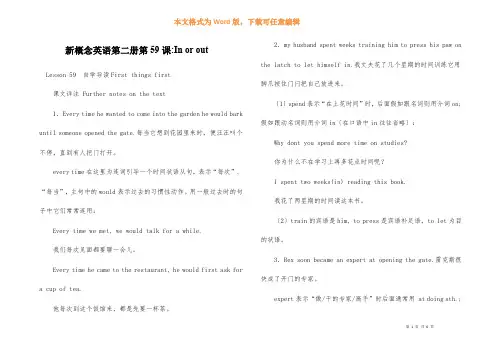
新概念英语第二册第59课:In or out Lesson 59 自学导读First things first课文详注 Further notes on the text1.Every time he wanted to come into the garden he would bark until someone opened the gate.每当它想到花园里来时,便汪汪叫个不停,直到有人把门打开。
every time在这里为连词引导一个时间状语从句,表示“每次”、“每当”,主句中的would表示过去的习惯性动作。
用一般过去时的句子中它们常常连用:Every time we met, we would talk for a while.我们每次见面都要聊一会儿。
Every time he came to the restaurant, he would first ask for a cup of tea.他每次到这个饭馆来,都是先要一杯茶。
2.my husband spent weeks training him to press his paw on the latch to let himself in.我丈夫花了几个星期的时间训练它用脚爪按住门闩把自己放进来。
〔1〕spend表示“在上花时间”时,后面假如跟名词则用介词on;假如跟动名词则用介词in〔在口语中in往往省略〕:Why dont you spend more time on studies?你为什么不在学习上再多花点时间呢?I spent two weeks(in) reading this book.我花了两星期的时间读这本书。
〔2〕train的宾语是him, to press是宾语补足语,to let为目的状语。
3.Rex soon became an expert at opening the gate.雷克斯很快成了开门的专家。
